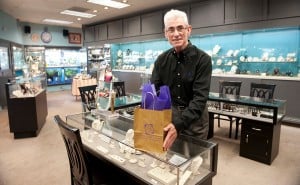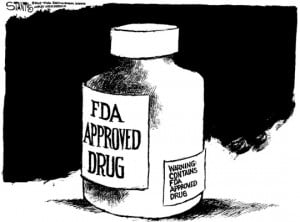Many of us now have to take annual FCPA (Foreign Corrupt Practices Act) training to validate/confirm that we are in compliance with the requirements of the act. Essentially, the FCPA prohibits bribes (which may be acceptable in other cultures) from being paid by US-based companies while conducting business outside of the US. Companies that are well-prepared for this have policies and processes in-place to ensure that not only bribes are not paid, but also that the appearance of a bribe is not paid.
Walmart is not one of those companies.
For months, rumors have been in and out of the news regarding the bribes paid by their Mexican subsidiary in the course of conducting business; primarily around obtaining permits and zoning for new stores. Their shares are down further after NYT published their investigation into the issue. The worst part: it appears as though Walmart shut down the internal investigation as soon as it started to “look bad” so that they would not be obligated to report any wrong-doing.
Was the price worth it?
Sadly, for Walmart: maybe. They have become one of the largest corporations in the world based on volume and cost, often at the expense of the communities around them, their employees, and now, apparently, ethical business practices. The general motto seems to be to move forward with “the plan” (employee benefits, cost of goods, location of stores, etc.) regardless of the cost.
In the short term, this seems to be working. Walmart also has a favorable economy for their business model as low-cost and convenient are two of the most important things to many of today’s consumers. Many households are on such tight budgets that they cannot “make a statement” with their purchases (or lack of purchases): they need to buy their groceries and other goods at the lowest cost possible. So they continue to shop at Walmart despite the less than stellar business practices.
So, the $1MM question: will it continue to work for Walmart?
Maybe, maybe not. I would like to believe not as the price the communities and individuals are paying to the benefit of Walmart cannot be worth it in the long-run. But, commercialism is powerful. If enough people either: (1) read the news and do not care or (2) do not read the news, then Walmart will continue to have customers and sales despite the business practices.
The other unknown is whether Walmart will face fines and/or it’s employees will face jail time. If this happens, then the equation likely changes for Walmart and the need for internal controls and policies will be greater. (Which is the entire point of the legislation: to make it more painful to not comply than to comply.)
Sources:
http://www.nytimes.com/2012/12/18/business/walmart-bribes-teotihuacan.html?hp&_r=0
http://www.nasdaq.com/article/wal-mart-de-mexico-shares-lower-on-renewed-bribery-allegations-20121218-00609#.UNCVjaWmDww
http://www.bloomberg.com/news/2012-12-18/wal-mart-probes-mexico-license-process-as-nyt-reports-bribery.html





